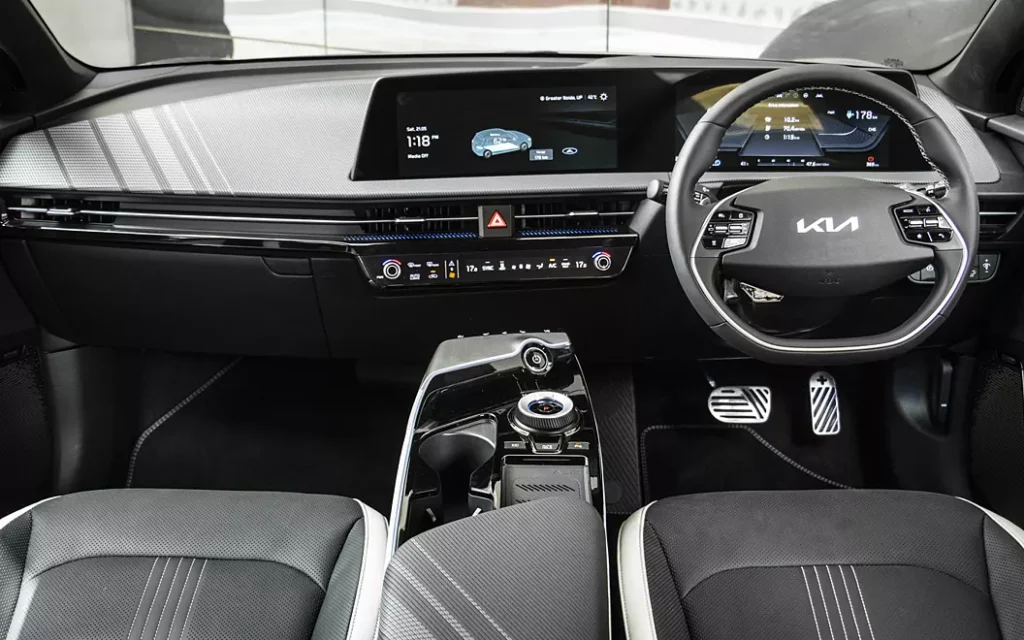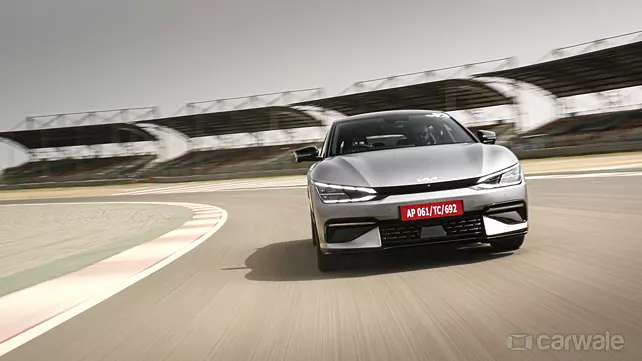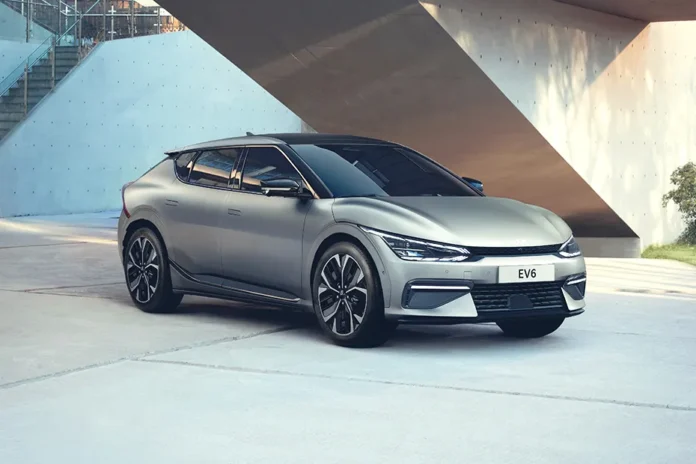A major recall affecting 1,138 units of the well-liked Kia EV6 electric SUV in India has been issued by Kia Motors. Vehicles built between March 3, 2022, and April 14, 2023 are affected by the recall, which was brought on by a possible problem with the Integrated Charging Control Unit (ICCU). This recall follows one that was similar in nature and was issued by Hyundai for its Ioniq 5 model, which uses the identical ICCU component.

Recognising the Problem with ICCU in Kia EV6
An essential component of electric cars such as the Kia EV6 is the ICCU. In order to charge the 12-volt auxiliary battery, it transforms the high voltage from the main battery pack into a lower voltage. Important electrical parts including the infotainment system, speakers, lighting, and climate control are powered by this auxiliary battery. The vehicle-to-load (V2L) capability, which enables the automobile to power external equipment, is another feature that the ICCU offers.
Unexpected drain of the 12-volt battery due to an ICCU problem might result in failures of these vital systems. A malfunction of this kind might endanger the safety of the occupants of the car by interfering with the lights, start/stop function, and other essential electronics.
Also Read :- Tesla’s Exciting New Rival: 2025 Zeekr 7X SUV Unveiled
What Owners Need to Do?
Owners of the impacted Kia EV6 units should bring their cars to the closest workshop approved by Kia so that they can be inspected. The ICCU will be replaced at no cost if it turns out to be defective. In order to notify them about the recall and the actions required to fix the problem, Kia will also make proactive contact with the owners of the impacted cars.
Comprehensive Details Regarding the Kia EV6
The Kia EV6 is well-known for its cutting-edge features and remarkable specs. Here’s what this electric SUV has to offer in more detail:
- Battery Pack: 77.4 kWh
- Drive Type: Available in both Rear-Wheel Drive (RWD) and All-Wheel Drive (AWD)
- Power Output: RWD: 229 PS, 350 Nm torque AWD: 325 PS, 605 Nm torque
- Range: Up to 708 km (ARAI-claimed)
Prominent attributes of the Kia EV6
The Kia EV6 is brimming with amenities that improve driving enjoyment, safety, and comfort:
- Two screens The infotainment system and instrument cluster include 12.3-inch curved screens.
- Ambient Lighting: A relaxing cabin atmosphere is created with 64-color ambient lighting.
- Front seats include power adjustments and ventilation.
- Sunroof: To give the interior a light and airy atmosphere
- Features for Safety: Eight safety belts, 360-degree lens, Adaptive cruise control, automated emergency braking, lane maintain assist, and blind spot collision avoidance are examples of advanced driver assistance systems (ADAS).

Cost and Competition in the Market
The ex-showroom pricing of the Kia EV6 in Delhi is between Rs 60.97 lakh and Rs 65.97 lakh. Its rivals include the forthcoming Skoda Enyaq iV, the Hyundai Ioniq 5, and the Volvo XC40 Recharge. In the same class, the BMW i4 is regarded as an inexpensive luxury choice, while the Volvo C40 Recharge offers an alternative.
Significance of This Recall
In addition to ensuring the security of Kia EV6 owners, this recall is essential to preserving the brand’s standing in the rapidly expanding electric car industry. Kia’s quick response to the ICCU problem shows how dedicated the firm is to customer safety and product dependability. The difficulties automakers have in making the switch to electric cars are brought to light by the recall of the Hyundai Ioniq 5 and Kia EV6. For consumers to feel confident in new technology, their dependability must be guaranteed.
Conclusion
The Kia EV6 recall brought on by the ICCU problem serves as a reminder of how crucial alertness and reaction are in the automobile sector. Kia’s proactive approach to problem-solving highlights its commitment to customer happiness and safety. Make sure you take the required action to resolve this recall and maintain the best possible condition for your Kia EV6 if you possess one.
Disclaimer: The information provided in this article is based on publicly available sources and may not be 100% accurate.

